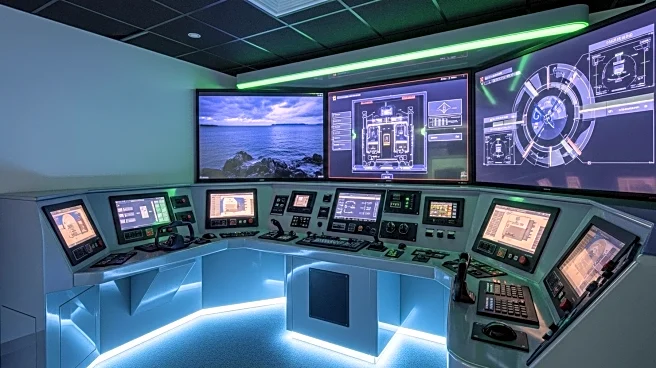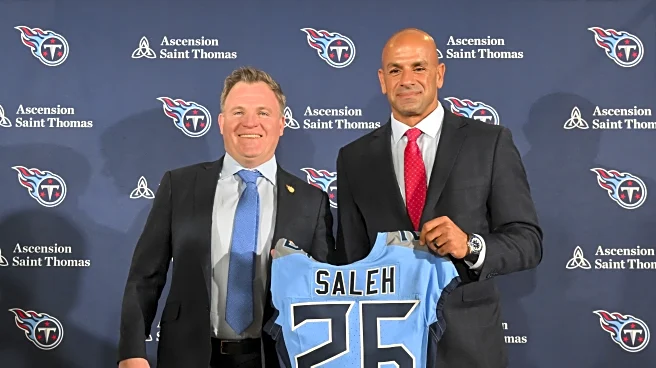What's Happening?
The International Maritime Organization (IMO) is intensifying its efforts to prepare seafarers for the transition to alternative fuels in the shipping industry. This initiative is part of the IMO's revised strategy to reduce greenhouse gas emissions from ships. The organization has issued interim guidelines for training seafarers on ships using alternative fuels and new technologies. These guidelines provide a framework for developing and approving training programs for seafarers on all ships using alternative fuels. The IMO is also collaborating with the World Maritime University to produce training materials, contributing to the Maritime Just Transition Task Force training frameworks.
Why It's Important?
The shift towards alternative fuels in the maritime industry is crucial for reducing greenhouse gas emissions and combating climate change. Proper training of seafarers is essential to ensure safety and efficiency in operating ships with new technologies. This initiative by the IMO supports global efforts to decarbonize the shipping industry, which is a significant contributor to global emissions. The training guidelines will help standardize the skills required for seafarers, ensuring a smooth transition to cleaner energy sources. This move is expected to have a positive impact on the environment and align with international climate goals.
What's Next?
The IMO's Sub-Committee on Human Element, Training and Watchkeeping will consider the fuel- and technology-specific interim training guidelines in February 2026. These guidelines are expected to form the basis for mandatory training requirements under the revised 1978 STCW Convention Code. The ongoing development of these guidelines and training materials will continue to support the maritime industry's transition to alternative fuels. Member States are expected to implement these guidelines, contributing to a global effort to reduce emissions from shipping.










